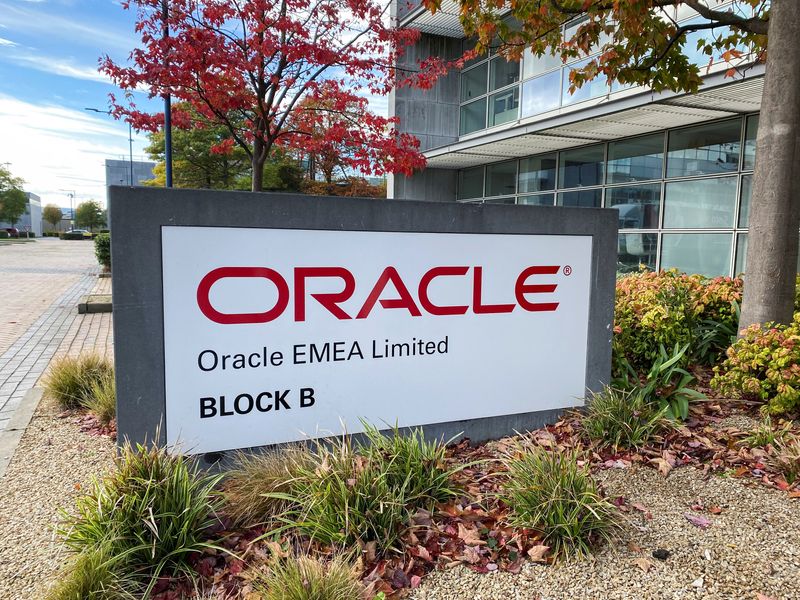
© Reuters Oracle (ORCL) now seen as a buy at Argus
(Updated – March 14, 2024 2:06 PM EDT)
On Thursday, Oracle (NYSE:) received an upgrade from Argus, moving from a Hold to a Buy rating, accompanied by a new price target set at $145 per share. The upgrade follows Oracle’s reported fiscal performance, which included a 16% increase in non-GAAP earnings per share (EPS) on a 7% growth in revenue.
Argus has adjusted its fiscal year 2024 EPS estimate for Oracle to $5.61, up from the prior $5.59, and forecasts a rise to $6.18 from $6.03 for the following fiscal year. These estimates suggest an average EPS growth of 10% over the next two years. Additionally, Argus has a long-term earnings growth rate forecast for Oracle at 8%.
The investment firm’s optimism is partly based on the significant milestone Oracle achieved in its fiscal third quarter of 2024, where its rapidly expanding cloud revenue surpassed its legacy license support revenue for the first time. This shift indicates that cloud services are expected to become an increasingly dominant component of Oracle’s total revenue.
Oracle’s management has confirmed its objective for the company to achieve $65 billion in revenue by fiscal year 2026, which would represent a compound annual growth rate (CAGR) of 9% from fiscal year 2023. The company is poised to capitalize on the ongoing trend of enterprise cloud digitization, transitioning from its traditional on-premise database software to cloud-based offerings.
The company faces the challenge of meeting high demand for its services, which currently exceeds its capacity. Oracle is actively investing in the expansion of its global data centers to address this issue. Furthermore, Oracle aims to maintain its market share against competitors such as Amazon Web Services, Microsoft Azure, and Google Cloud Platform, leveraging its partnerships with Microsoft Azure and AI chip producer NVIDIA.
While Oracle’s aggressive share buybacks have been put on hold as it works to fortify its balance sheet following the acquisition of Cerner, analysts note the company’s history of shareholder-friendly initiatives, including strong dividend growth.




